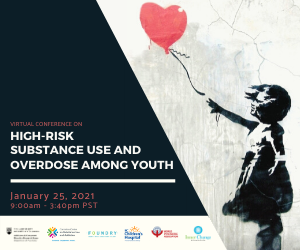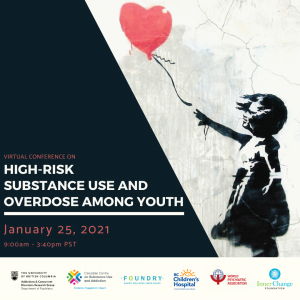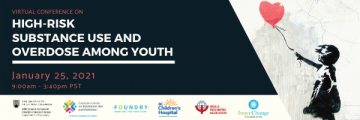January 25, 2021 9:00 am – 3:40 pm PST
Download the Program
Q: I am having technical difficulties, where can I find help?
Many problems may occur due to limited bandwidth or unstable internet connection. We recommend restarting your router or hot-spotting your phone data if any problems persist.
If you are experiencing technical difficulties during the conference (e.g., your microphone or camera is not working, the Zoom platform is frozen etc.), please contact the MedIT Service Desk at 1.877.266.0666 or medit.servicedesk@ubc.ca
Q: Where do I find the links to enter the conference?
Register for the conference to receive an email with the conference link
Please note that Zoom links for individual workshops have been e-mailed only to the list of workshop registrants. You will only be able to access the workshops that you signed up for in each block.
Q: Where do I find the Zoom links to attend workshops?
Zoom links for workshops have been sent to workshop registrants via e-mail. If you are having trouble locating the Zoom links please contact our Event Coordinator at desiree.chek@ubc.ca
Q: How do I submit questions during the keynote presentations, Lightning Talks, and Panel Discussion?
The chat and Q&A function will not be available during the keynote presentations, lightning talks, or panel discussion. We will be using Sli.do for questions and answers: https://app.sli.do/event/miwpdcay
Keynote speakers will be monitoring Sli.do during while their presentation is occurring and will do their best to answer your question in real-time.
Please note that the chat and Q&A function will be available for use during workshops. Your workshop leader and moderator will provide more information during each individual session.
Q: My question did not get answered during the conference - how can I follow-up?
Questions that did not get answered during the conference will be archived and answered within one week of the conference. Please check https://app.sli.do/event/miwpdcay post-conference to see if you question has been answered.
Q: I did not sign up for a workshop, what do I do during this time?
Lightning Talks will be taking place concurrently to workshops. Please see the program for more details.
Q: I forgot to sign up for a workshop! Can I sign up for a workshop the day-of the conference?
Yes, you can still sign up for workshops with remaining spaces here: https://acdresearch.med.ubc.ca/workshop-sign-up/
Once you have signed up for the workshop will you will receive an automatic e-mail containing the Zoom link to join. Workshops that have reached capacity will be marked “FULL.” You will not be able to sign up for this workshop.
Q: I am on a wait-list of a workshop – how do I find out if I was accepted into the workshop?
If you are on a wait-list of a workshop and there is room in the workshop, you will received an e-mail from desiree.chek@ubc.ca inviting you to join the workshop. You may be contacted anytime before the start of the workshop.
Q: I signed up for workshop "X", but now I am more interested in workshop "Y". Can I switch workshops?
You may switch workshops prior to the starting time of the workshop. Please e-mail desiree.chek@ubc.ca to let her know which workshop you would like to drop, then please sign up for your preferred workshop here: https://acdresearch.med.ubc.ca/workshop-sign-up/
Please ensure that the new workshop you would like to attend is not marked "FULL." If the workshop is full, you will not able to switch into the workshop.
Q: Where do I view the E-Posters?
The E-Posters Gallery is available at: https://acdresearch.med.ubc.ca/eposter-gallery/
Voting for the "Best Poster" will take place on Sli.do: https://app.sli.do/event/miwpdcay
Q: Where do I vote for my favourite Lightning Talk and E-Poster?
Voting will occur at https://app.sli.do/event/miwpdcay Winners will be announced in the closing remarks.
Q: How can I promote and share this event?
We encourage participants to engage in social media and share this event among their community. Tweet us your at-home conference experience with #YouthODConference so we can see the community of people joining us from across Canada and around the world to support this important cause.
We have created a promotional toolkit that can be found here: https://acdresearch.med.ubc.ca/events/high-risk-substance-use-and-overdose-among-youth-conference/
There will be an award for our "Top Tweeter," who will receive a "spotlight" on the ACD Research Group's social media accounts. We will create a post about the winner and they will be invited to help live-tweet at an upcoming event. The winner will be announce via social media in the week post-conference and will receive a certificate via e-mail.
Q: What is a “Sponsor Booth”?
Some of our sponsors will also be hosting “virtual booths” that you can visit throughout the conference. A representative for our sponsor organizations will be at these booths to provide more information about their organization and share recent news and project updates. Please see the agenda for more information on how and when to access the booths.
Q: Who is sponsoring the event?
This event would not be possible without the generous support of our partners who share our vision to share a better tomorrow for youth at risk for substance use and overdose. The sponsors for this conference include Foundry, the Canadian Centre on Substance Use and Addiction, BC Children’s Hospital, the World Psychiatric Association, the InnerChange Foundation, and Otsuka Canada Pharmaceutical Incorporate.
Q: Is there an opportunity to provide feedback on this conference?
Yes, we welcome your feedback and would like to hear your thoughts on the conference. A link to a feedback form will be distributed in the week after the conference.
Q: How do I keep updated about future events?
Please subscribe to our mailing list to receive more information about future events, project updates, and more
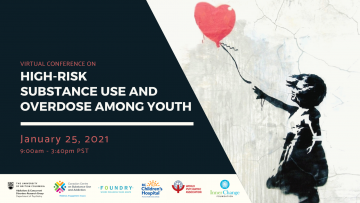
The rising numbers of young people with high-risk substance use, especially suffering from overdose, is alarming. Adolescence and young adulthood (under the age of 25) is the period of highest incidence and greatest impact of mental health and substance use disorders, yet there are no youth-specific services in place. Further, youth are not benefiting from and are often excluded from most adult harm reduction and treatment services. We know that good and effective care for youth needs to address their complex age-specific needs. Youth’s pattern of use is more often explorative and nearly all youth who use substances experience early trauma experiences and mental health challenges. Any overdose event is an overall crisis and increases the risk for a following one. US statistic shows only a small minority of youth ending up in treatment after surviving an overdose.
Recognizing the desperate need for effective youth substance use services, we host this event to create an opportunity to address experiences in dealing with youth in the substance use field, the system of care as well as the treatment paradigms from diverse perspectives. The outcome of which should drive an effective response to this public health crisis
We want to raise awareness for this important aspect of the overdose crisis and initiate a debate on necessary initiatives to create a proper clinical system addressing adolescence. Further, we want to conduct more research on youth-specific needs and effective interventions to be included Today, adolescents in North America with high-risk substance use are rarely getting treatment even after the experience of an overdose; this must change and we hope you will be a part of this change
Michael Krausz MD, PhD, FRCPC
Leadership Chair, UBC Addiction Research
Chair, World Psychiatric Association Section on Addiction Psychiatry
President and Chair, InnerChange Foundation
Keynote Speakers
Dr Rachel Alinsky
Assistant Professor of Pediatrics, John Hopkins School of Medicine
Dr Michael Krausz
Leadership Chair, UBC Addiction Research
Chair, World Psychiatric Association Section on Addiction Psychiatry
President and Chair, InnerChange Foundation

Dr Ian Hickie
Co-Director, Health and Policy at The University of Sydney’s Brain and Mind Centre
Professor of Psychiatry, University of Sydney
Q/A
Read through the Q/A's with the conference speakers here.
Workshops
View the workshop descriptions and materials below
At this workshop, we will be exploring gaps in the systems of care for youth with substance use disorders from an international perspective. We will discuss levels of care and transitions between care settings, with particular focus to critical points where youth may fall through the cracks. Presented by Rachel H. Alinsky, MD, MPH, Assistant Professor of Pediatrics, Johns Hopkins University School of Medicine Moderated by Ava Outadi, Senior Researcher, Addictions and Concurrent Disorders Research Group, University of British Columbia The treatment of young high-risk drug users is an international challenge. There are very little capacities and specialized programs in different countries and the majority of adolescents that end up in an emergency room after binge drinking or an overdose are not receiving quality treatment. Even the disciplines involved internationally are not the same, the whole system of care is not organized in a comparable way. This breakout session will be based on a few examples from Europe, North America, and North Africa that reflect on the reason for that and try to identify positive experiences and the way forward. Presented by Maurice Cabanis, Julie Elsner, and Dr Mostafa Kamel Switzerland is one of the countries with the best and most effective developed addiction treatment systems. Access to care is available immediately regardless of the necessary intervention. The spectrum of interventions includes every substitution substance possible and is always integrated with psychosocial interventions and good mental health care. Switzerland also managed to bring down incidence rates of first heroin users and has no fentanyl problem as well as extremely low overdose events Presented by Dr Marc Vogel, Medical Director, Addiction Psychiatry department, Muensterlingen Hospital Moderated by James Wong, Masters of Experimental Medicine Candidate, University of British Columbia Foundry delivers in-person and virtual services to young people aged 12 to 24 years in British Columbia and is widely viewed as a leader in integrated youth services. In the first 20 minutes, this presentation will outline how Foundry is actioning BC’s Pathway to Hope Strategic Plan through integrated, youth-centred service delivery (i.e., primary care, mental health and substance use, youth and family peer supports, and social services) and education. In the next 20 minutes, we will engage in 20 mins of break out activities to co-design solutions to address how integrated youth health services can address the overdose crisis in four areas: (1) Primary Care, (2) Psychiatry, (3) Youth and Family Peer Support, and (4) Social Services. In the last 20 minutes, the learnings of the breakout groups will be synthesized and presented to the larger group to outline a shared vision for service excellence for young people and families at risk of overdose. Presented by Steve Mathias, Executive Director, Foundry; Elise Durante, Manager of Service Innovation, Foundry; and Skye Barbic, Head Scientist, Foundry; Assistant Professor UBC Faculty of Medicine In other parts of Psychiatry, such as in the treatment of schizophrenia, early intervention is recognized as an important and evidence-based treatment approach. Specialized programs are established in order to focus on the problem as early as possible. There are evidence-based early intervention programs for high-risk adolescent substance use, but this is infrequently implemented and adolescents suffer an overdose or start to inject. How could an effective preventative approach combined with early intervention help in the current opioid overdose crisis? Presented by Martha J. Ignaszewski, MD, FRCPC; and Emily Tejani, MD, MPH, UCSF OAT treatment for adolescents is a treatment strategy which is discussed controversially. Most professionals and families see abstinence-based therapies as the way to go and the only one appropriate for youth. The spectrum of interventions applied to adults is not used for adolescence. Based on clinical examples, the benefits and risks of substitution treatment will be discussed. Are there reasons in times of overdose to reconsider treatment goals and interventions for adolescents and young adults? Presented by Dr Pouya Azar, Addiction Psychiatry Lead, Foundry Vancouver; Head of the Complex Pain and Addiction Services, Vancouver General Hospital; and Dr Nick Mathew, Medical Director, The Burnaby Center for Mental Health and Addiction This workshop is based on 35 years of working with High-Risk Youth and their families. I will explore the trajectory from birth to adolescence and the role attachment and parental modelling impacts the youth and their decisions making skills. Presented by Mary Murphy, M. Ed This presentation will examine the relationship between methamphetamine use disorder and psychosis, provide a broad overview on the evidence regarding substitution therapy, and discuss the emerging topic of safe supply. A question and answer portion will follow the presentation. Presented by Julius Elefante and Reza Rafizadeh
Early traumatic experiences are the most important catalyst for self-harming behaviour and high-risk substance use among adolescents and young adults. It is well documented that people with injection drug use and vulnerable urban populations show a rate of 2-3 early traumatic experiences. How does that impact the potential overdose experience? It’s also known that among injection drug users, rates of suicidal attempts are significant. How does that relate to traumatic experience and individual risk behaviour? Based on studies in British Columbia and beyond as well as clinical examples we will discuss the significance of this relationship and how to address it. Presented by Dr Michael Krausz, MD, PhD, FRCPC Adolescent medicine as a paediatric discipline is playing a major role in the care of overdose clients under 18. In British Columbia, acute care patients under 18, like overdose patients are treated in paediatric stabilization units. How could the system of care mid and long-term be aligned and how could an interdisciplinary approach strengthen the overdose response? Presented by Dzung X. Vo, MD, FAAP, FSAHM, Head, Division of Adolescent Health and Medicine, Department of Pediatrics, BC Children’s Hospital, Clinical Associate Professor, UBC Faculty of Medicine and Eva Moore, Adolescent Medicine Pediatrician, BC Children's Hospital How can progressive health promotion strategies transcend prescriptive, “single answer” efforts to reduce the likelihood of problematic substance use by children and youth? This practical, data-based presentation and discussion will highlight relevant research, invite participant experiences, ideas and questions, and share learnings from SACY (Supporting and Connecting Youth) a Vancouver School Board holistic health promotion initiative in its 15th year in secondary schools across the city. Presented by Art Steinmann Manager, Substance Use Health Promotion and SACY, Vancouver School Board Moderated by Dr Fiona Choi, Research Associate, Addictions and Concurrent Disorders Research Group, University of British Columbia This workshop will highlight findings from the Canadian administration of the WHO World Mental Health International College Student survey. We will discuss student adherence to Canadian low-risk cannabis and alcohol use guidelines, examine the relationship between mental health and substance use in this population, and report on barriers to treatment in students with alcohol and substance use disorders. Through interactive polls and discussions, we will explore the implications of these findings and how they can inform the development of e-health resources for students with high-risk substance use Presented by Dr Daniel Vigo, Assistant Professor, Department of Psychiatry, University of British Columbia; Laura Jones, Chris Richardson, Richard Munthali, and Julia Pei Based on video examples and clinical case stories, experienced addiction psychiatrists will present the real-life situations of high-risk behaviour and overdose to discuss the management of crisis and necessary strategies to recovery. Presented by Dr Pouya Azar, Addiction Psychiatry Lead, Foundry Vancouver; Head of the Complex Pain and Addiction Services, Vancouver General Hospital; and Dr Nick Mathew, Medical Director, The Burnaby Center for Mental Health and Addiction Youth are more vulnerable to mental health challenges, high-risk substance use, and overdose than any other age group. The available evidence is generally not sufficient to justify robust treatment recommendations for high-risk substance use among youth. To address this, a Delphi study is currently underway to obtain a consensus statement for the management of high-risk substance use in adolescence and early adulthood. In the workshop, we will dive deeper into the international context surrounding youth and substance use treatment, and ask participants to provide external feedback regarding the study. We will also discuss agreed-upon as well as controversial statements regarding the therapeutic continuum for adolescence at risk of overdose or other severe adverse events. Presented by Jean Westenberg, Masters of Experimental Medicine Candidate, University of British Columbia; Maurice Cabanis, and Martha J. Ignaszewski, MD, FRCPC Childhood trauma is a robust risk factor for the development of substance use disorders among youth and adults. This workshop will first present a summary of several cross-sectional and longitudinal studies that explored mechanisms explaining the relationship between childhood trauma and substance use, with a focus on youth. Then, it will be discussed how the results of these studies guided the adaptation of an evidence-based early intervention program for reducing the risk of substance use disorders in youth with traumatic experiences. Presented by Dr. Hanie Edalati, Researcher, Canadian Centre on Substance Use and Addiction (CCSA); Associate Researcher, Centre for Research on Children and Families, McGill University Moderated by Andy Tai, Masters of Neuroscience Candidate, University of British Columbia Online communication and platforms are becoming more and more important as a health resource for adolescents and young adults. They extend the engagement beyond traditional in-person services and allow connection, communication and all kinds of interventions in the virtual world. That could reach from a risk assessment and management to online treatment towards addressing mood disorder, trauma or anxiety. Also, substance-use-specific resources are more and more available. Presented by Mohammadali (Mo) Nikoo, Physician Resident, PhD candidate, University of British Columbia; and Alireza Kazemi, MD, PhD, Researcher and Data Scientist, Addictions and Concurrent Disorder Group, Department of Psychiatry, University of British Columbia
OAT treatment is only offered to a few adolescents in Canada. In other countries, it is part of the normal repertoire of care. Especially based on the experiences in Switzerland and Canada, the international landscape of treatment options will be presented and discussed to contribute to a more goal-oriented and patient adapted treatment approach. Presented by Dr Marc Vogel, Medical Director, Addiction Psychiatry department, Muensterlingen Hospital; and Dr Pouya Azar, Addiction Psychiatry Lead, Foundry Vancouver; Head of the Complex Pain and Addiction Services, Vancouver General Hospital; Presented by Dr Daniel Vigo, Assistant Professor, Department of Psychiatry, University of British Columbia; Lynn Pelletier, Vice President, Mental Health and Substance Use Services, Provincial Health Services Authority; And Dr Vijay Seethapathy, Chief Medical Officer, BC Mental Health and Substance Use Services Presented by Kathryn Proudfoot, Director, Patient Experience and Community Engagement at BC Mental Health and Substance Use Services; Leslie McBain, Co-founder, Moms Stop the Harm; Family Engagement Lead, B.C. Center on Substance Use; and Dr Michael Krausz, MD, PhD, FRCPC This workshop will cover the concept of community-based co-design as an approach, and its application for improving substance services for young people using the ITT project as an example. It will then assess and apply strategies for engaging young people with lived experience of substance use in the co-design process using an interactive activity. The workshop will also share lessons learned from the ITT Project applying these methods. Presented by Christina Katan, Knowledge Broker, The Canadian Centre for Substance Use and Addiction; The COVID-19 pandemic transformed mental health and substance use research and health service delivery. There was an imminent risk of loss of engagement with patient partners, compromising the initiatives outlined in Canada's Strategy for Patient-Oriented Research (SPOR). Through the use of strategic funding and partnership with the Faculty of Medicine at UBC, a mental health youth and family research advisory panel was created. This workshop will briefly discuss the project and current deliverables. Though interactive and thoughtful discussion, we will explore meaningful engagement and how this is actualized in research and healthcare services. Tangible and concrete recommendations on how to engage with youth and family partners will be explored. Self-reflective activities will develop new perspectives and strategies on how to promote collaborative and authentic partnerships with youth and family impacted by substance use and overdose. Presented by Erin Klein, Project Manager, Youth and Family Research Advisory Panel; Dan Nixon, Youth Research Coordinator; Youth Peer Engagement Coordinator, Foundry; and Christina LaBerge, Family Research Coordinator, Family Peer Engagement Coordinator, Foundry This workshop will be focused on identifying the gaps in the current system that are failing our youth - inadequate support for concurrent disorders & developmental disabilities as well as a system that lacks a streamlined approach to support youth in their transition to adulthood. We will also examine the shortcomings of current secure care legislation as they relate to youth with mental health and substance use disorders. Presented by Keerit Dhaliwal, Youth Worker; and Rita Dhaliwal, Youth Development Facilitator In this workshop, we will discuss the relationships between child welfare, homelessness, and indicators of health. Analyzing the results of the BC Health of the Homeless Survey, we will discuss pathways forward and ongoing innovative programs and research to better support street-entrenched youth. Presented by Verena Langheimer Verena Langheimer, MD, FRCPC, ISAM (Cert.) Moderated by Kimia Ziafat, Researcher, Addictions and Concurrent Disorders Research Group, University of British Columbia The session will explore the potential of mindfulness-based interventions to support long-term well-being in families. Specifically, it will cover mindfulness offered to parents in distressed families, with a focus on parents that experience mental health issues during the postpartum period and during the first years of the child's life. We will discuss the interventions' impact on family dynamics and its potential to support the child growing up in a more stable and healthy family environment. Presented by Dr Katarina Tabi, PhD Moderated by Kiana Kianpoor, MD Candidate, University of British Columbia Beside the social and psychological factors contributing to high-risk situations and increase substance use biological factors are playing in important role too. Cumulative stress, trauma and adversity come with functional changes in the brain reward and emotional pathway system especially among adolescents. The stress adversity in addicted individuals has a significant impact on relapse and recovery. In order to improve the effects of prevention and treatment it is important to be aware of the interactive effects of neural, biological and other changes associated with stress, trauma and I risk substance abuse among adolescents. In this workshop you will get a good overview about the most recent evidence. Presented by Dr Christian Schütz, MD, PhD, MPH, FRCPC, Associate Professor, University of British Columbia Moderated by Andy Tai, Masters of Neuroscience Candidate, University of British Columbia
1. Gaps in care for youth with substance use disorders
2. The international picture between gaps and specialization

3. The Swiss Example
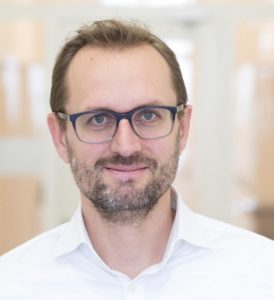

4. Supporting young people with substance use challenges through integrated care: Early lessons from Foundry
5. Prevention and Early Intervention for Adolescent Substance Use

6. OAT treatment for vulnerable youth

7. Trauma and its relation to addiction in High-Risk Youth
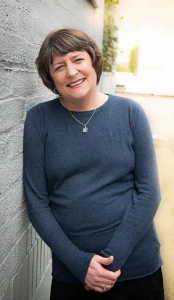
8. Risks in times of overdose: methamphetamine use among young adults

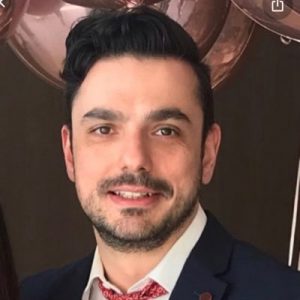
9. Early trauma and substance use
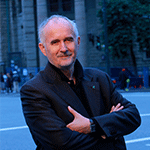
10. The challenge for paediatrics


11. Prevention concepts for schools
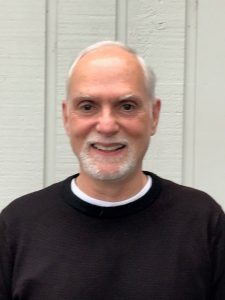

12. High-risk substance use in a student population

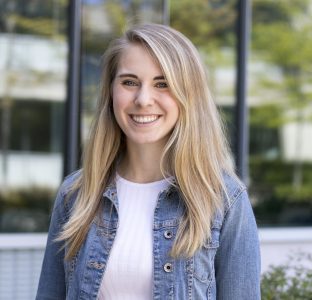


13. Clinical case conference

14. Developing consensus on the treatment of high-risk substance use among youth

15. The Role of Childhood Trauma in Vulnerability to Substance Use among Youth: Implications for Early Targeted Interventions
16. Virtual care in the treatment of substance use for adolescence
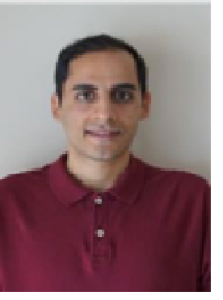

17. Substitution for adolescents: International experiences


18. What we know and what we should do: Addiction in young adults

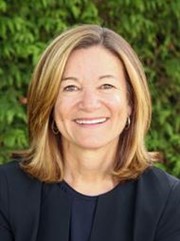

19. How to involve families
Families are very often the main or sometimes the only resource in social networks of children who use drugs. Substance use problems from both ends have a high impact family relationships. Experiences around substance use can often tear families apart. How can families, youth, and professionals collaborate to develop a joint strategy to deal with the risks and prevent the worst? How would it be possible to establish a dialogue between generations and learn from expectations and experiences between them?
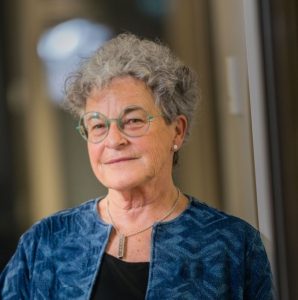

20. Improving Treatment Together Project: Community-based co-design with young people who use substances
Corinne Tallon, Research Manager, Foundry Central Office;
and Kat Pellatt, Youth Team Member, Improving Treatment Together Project


21. Youth and family in action: Implementation of a youth and family research advisory project panel for patient-oriented research
22. Youth homelessness and addiction treatment

23. Child welfare and homelessness: research, results, and recommendations from the BC health of the homeless survey


24. Mindfulness-based interventions as a prevention approach in families
The experiential part of the session will include a short mindfulness practice.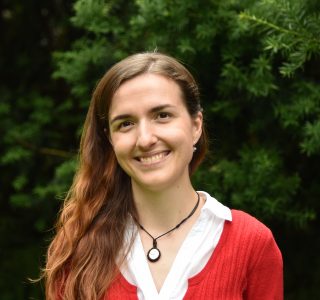
25. Biological risk factors for high-risk substance use
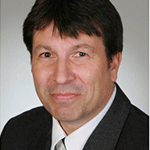
ePosters and Lightning Talks
View the ePoster Gallery
Promotional Toolkit
Thank you so much for helping us promote the High-Risk Substance Use and Overdose Among Youth Conference. Working with you to encourage attendees to join us will help build a robust community of both diverse and interlinked stakeholders to enhance the virtual meeting experience.
This toolkit offers several communication items to help spread the word about the High-Risk Substance Use and Overdose Among Youth Conference on January 25, 2021.
The drop-in content is designed to be used across your communication channels—including your website, newsletter, email lists, or social media pages. You can also use the key messages below to create your own promotional content.
If you cannot find what you need, please contact desiree.chek@ubc.ca.
PDF Invitation
Sample Social Media Posts
Speakers
Sample Tweets
- I’m excited to announce that I will be speaking at #YouthODConference. @ACDResearch, @BCChildrensHosp, @CCSACanada, @CCDUSCanada, @Foundrybc, @innerchangefndn and @WPA_Psychiatry have collaborated to host the High-Risk Substance Use & Overdose Among Youth Conference. Register here: bit.ly/YouthODConference
- I’m speaking at #YouthODConference. Don't miss my session and register here to attend the High-Risk Substance Use & Overdose Among Youth Conference. bit.ly/YouthODConference
- Interested in INSERT SESSION TOPIC? Attend my session at the High-Risk Substance Use & Overdose Among Youth Conference on January 25, 2021. Register now: bit.ly/YouthODConference #YouthODConference
- Registration for #YouthODConference is now open. Join the conversation about high-risk substance use & overdose among youth and register today: bit.ly/YouthODConference
Sample Linkedin Post
- I’m a presenter at the High-Risk Substance Use & Overdose Among Youth Conference. Come to my session, INSERT SESSION NAME IF APPLICABLE to learn about INSERT SESSION. Register now: bit.ly/YouthODConference
Sample Facebook Post
- On January 25, 2021, I’ll be speaking at the High-Risk Substance Use & Overdose Among Youth Conference. Register today and join the conversation about this important aspect of the overdose crisis. bit.ly/YouthODConference
Organizations
Sample Tweets
- On January 25, 2021, colleagues from across the healthcare community will gather for a virtual conference on high-risk substance use and overdose among youth. Join us as we raise awareness for this important aspect of the overdose crisis at #YouthODConference. Register today: bit.ly/YouthODConference
- Join the conversation about high-risk substance use and overdose among youth. We’ve collaborated with @ACDResearch, @BCChildrensHosp, @CCSACanada, @CCDUSCanada, @Foundrybc, @innerchangefndn and @WPA_Psychiatry to hold a virtual conference to raise awareness for this important aspect of the overdose crisis. Register now: bit.ly/YouthODConference
- We’re looking forward to the High-Risk Substance Use & Overdose Among Youth Conference on January 25, 2021. Join us and other colleagues from across the healthcare community to discuss effective solutions to this public health crisis. Register here: bit.ly/YouthODConference #YouthODConference
Sample Facebook Post
- Join us on January 25, 2021 for a virtual conference on high-risk substance use and overdose among youth. We’ve collaborated with the Canadian Centre on Substance Use and Addiction, Foundry BC, BC Children's Hospital, Innerchange Foundation, and the World Psychiatric Association to raise awareness for this important aspect of the overdose crisis. Register now: bit.ly/YouthODConference
Sample Linkedin Post
- The High-Risk Substance Use & Overdose Among Youth Conference will be here before you know it. Join us and other colleagues from across the healthcare community to discuss effective solutions to this public health crisis. Register here: bit.ly/YouthODConference
Individuals
Sample Tweets
- On January 25, 2021, I’ll be attending a virtual conference on high-risk substance use and overdose among youth. @ACDResearch, @BCChildrensHosp, @CCSACanada, @CCDUSCanada, @Foundrybc, @innerchangefndn and @WPA_Psychiatry have collaborated on this conference to raise awareness for this important aspect of the overdose crisis. Register here: bit.ly/YouthODConference
Sample Facebook Post
- The High-Risk Substance Use & Overdose Among Youth Conference is coming up soon. Join me and other colleagues from across the healthcare community. Register here: bit.ly/YouthODConference
Sample LinkedIn Post
-
- I’m looking forward to the High-Risk Substance Use & Overdose Among Youth Conference happening on January 25, 2021. Register today and join the conversation about this important aspect of the overdose crisis. Register here: bit.ly/YouthODConference
Graphics
Click on the image to download
email newsletter (300px x 250 px)
(Twitter 1600px x 900px)
Instagram (1080px x 1080px)
Email header (600px x 200px)


